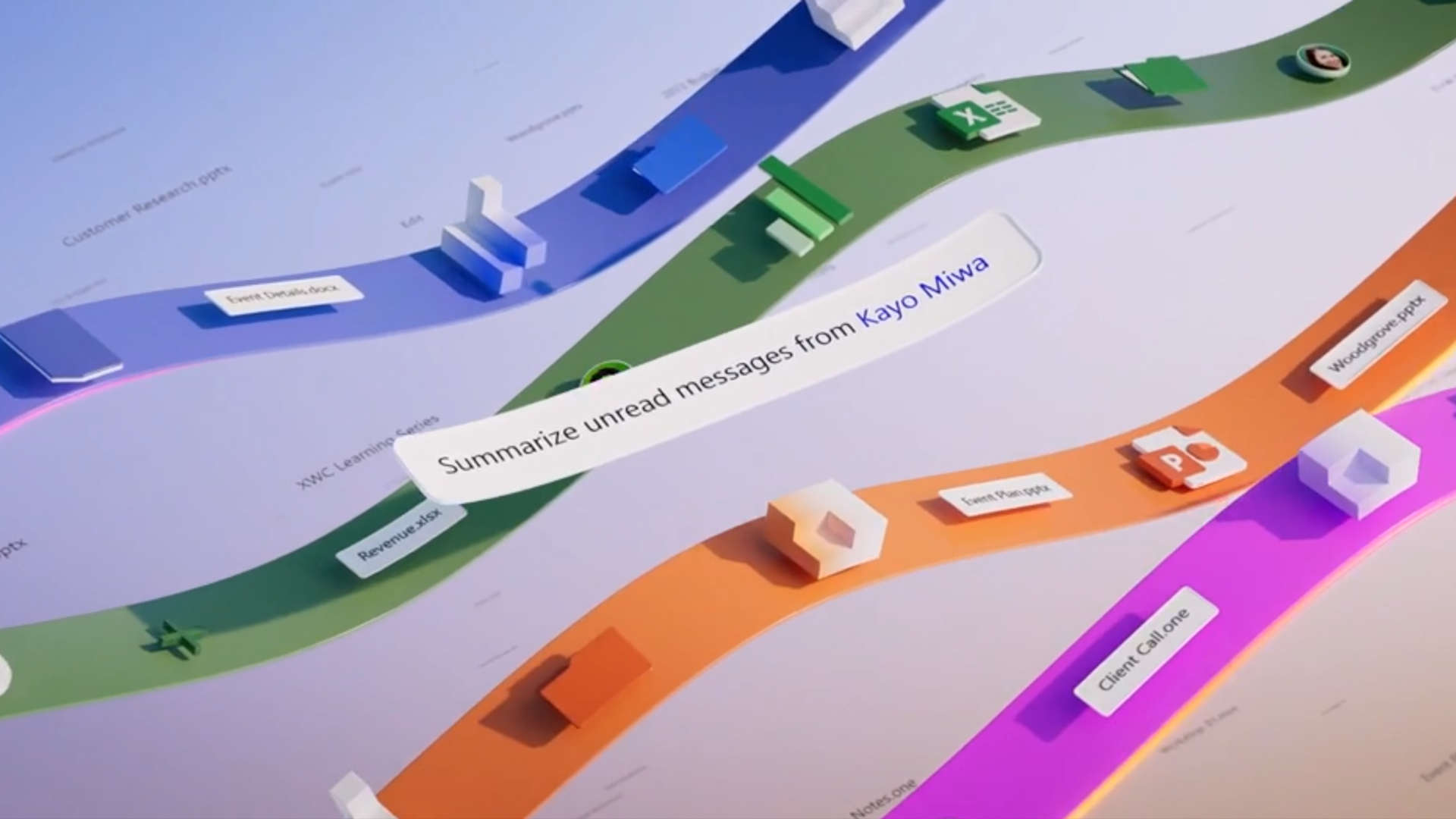Microsoft's head of AI wants to create an artificial overly-attached companion for us all: 'It will have its own name, its own style. It will adapt to you. It may also have its own visual appearance and expressions'
'Copilot in the workplace, Copilot at home is the future of the company.'

As part of Microsoft's 50th-anniversary celebrations, it's been talking a lot about its past but also its future and one doesn't need a crystal ball to figure out what that will entail. According to the CEO of Microsoft's AI division, we're all going to be seeing a lot more of Copilot and, ultimately, digital companions powered by AI that will form a "lasting, meaningful relationship" with you.
This is all claimed by Mustafa Suleyman, the head of Microsoft's AI section, and he expounded on what this would all be like in an interview with the Associated Press. "My goal is really to create a true personal AI companion. And the definition of AGI [artificial general intelligence] sort of feels very far out to me and sort of not what I’m focused on in the next few years.”
As to what he means by a 'companion', he explained by saying Microsoft's AI technology will be "[o]ne that knows your name, gets to know you, has a memory of everything that you’ve shared with it and talked about and really comes to kind of live life alongside you,” he told AP. "It’s far more than just a piece of software or a tool. It is unlike anything we’ve really ever created."
AI is already a big part of everything that Microsoft churns out these days, all wrapped up under the moniker of Copilot. From Office to Notepad, full operating systems to Surface laptops, the chatbot-on-steroids is ever-present but at least one never has to interact with it.
I'm not suggesting for one moment that some aspects of the integration of Copilot aren't useful—for the right user, the features provide a variety of shortcuts to boost productivity or gain better insights into what you're doing. Like all software tools, it can be very useful or very useless. However, it's clear that Suleyman envisages something rather different for the future of Microsoft's AI.
And we're not just talking about things in the far future. Some of this will start to roll out relatively soon, starting with Microsoft's mobile applications, which will gain some kind of 'visual memory capability' that sounds very much like the much-delayed Recall.
Suleyman is no recent convert to the world of AI. Nearly 25 years ago, he co-founded and led DeepMind, a UK-based AI company that would ultimately be snapped up by Alphabet, Google's parent company, in 2014. DeepMind is famous for creating AlphaGo, an AI system that could give some professional Go masters a run for their money.
The biggest gaming news, reviews and hardware deals
Keep up to date with the most important stories and the best deals, as picked by the PC Gamer team.
After leaving Google in 2022, Suleyman went on to start up another artificial intelligence company, Inflection AI, before eventually joining Microsoft as the executive vice president and chief executive officer of its AI division in 2024. While clearly a big fan of AI and what it can do for us, he's also been a vocal proponent for the enforcement of AI ethics and the like. However, he's also well known for having the view that pretty much anything on the Internet is fair game to be used for AI training, which rather flies in the face of copyright laws.
While attending this year's Game Developer Conference, I saw an awful lot of stands, press talks, and lectures on AI in games and gaming. Artificial NPCs, artificial gaming buddies, artificial advice, artificial rendering—AI couldn't be escaped. We might not see Suleyman's vision of an overly-attached AI companion anytime soon but given how much money Microsoft and the rest of the tech world are spending on all of this right now, you can be sure that it will happen.
Windows 11 review: What we think of the latest OS.
How to install Windows 11: Guide to a secure install.
Windows 11 TPM requirement: Strict OS security.

Nick, gaming, and computers all first met in 1981, with the love affair starting on a Sinclair ZX81 in kit form and a book on ZX Basic. He ended up becoming a physics and IT teacher, but by the late 1990s decided it was time to cut his teeth writing for a long defunct UK tech site. He went on to do the same at Madonion, helping to write the help files for 3DMark and PCMark. After a short stint working at Beyond3D.com, Nick joined Futuremark (MadOnion rebranded) full-time, as editor-in-chief for its gaming and hardware section, YouGamers. After the site shutdown, he became an engineering and computing lecturer for many years, but missed the writing bug. Cue four years at TechSpot.com and over 100 long articles on anything and everything. He freely admits to being far too obsessed with GPUs and open world grindy RPGs, but who isn't these days?
You must confirm your public display name before commenting
Please logout and then login again, you will then be prompted to enter your display name.


